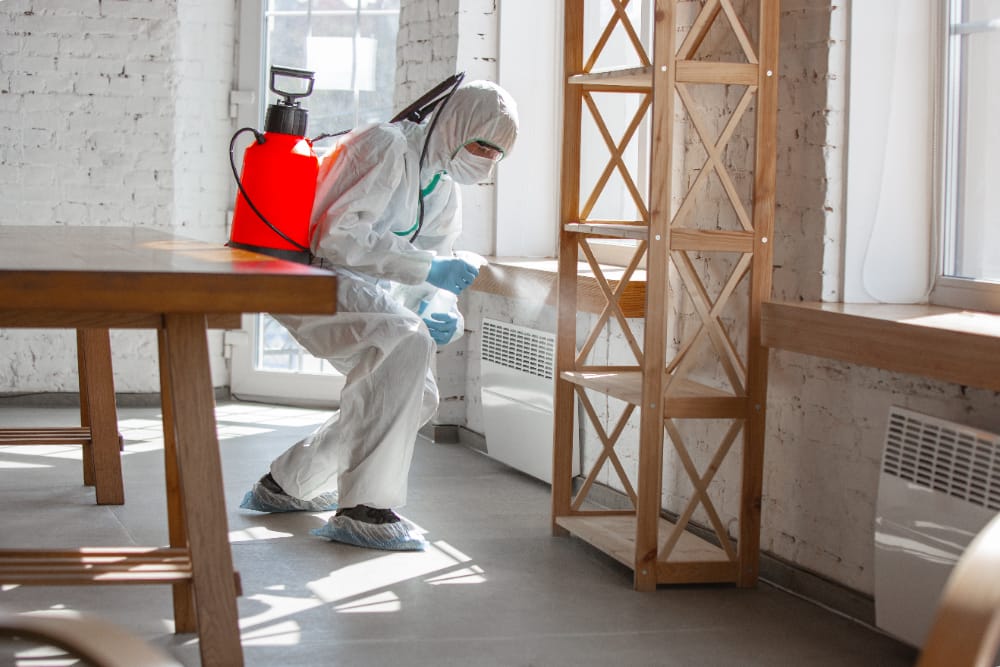Living in a home with mould can cause more than just a musty smell or unsightly patches on walls. If left untreated, mould can pose serious health risks, leading to respiratory problems, allergies, and other long-term health issues. For tenants in London, housing disrepair leading to mould growth is not only a concern for your health but also a legal matter that could entitle you to compensation. If mould in your home has caused illness, here’s what you need to know and how National Claims can connect you with experienced solicitors to pursue a claim.
Health Risks of Mould Exposure
Mould thrives in damp, poorly ventilated areas, and it can spread quickly if not dealt with properly. Prolonged exposure to mould can cause a variety of health issues, particularly for vulnerable individuals such as children, the elderly, and those with pre-existing respiratory conditions. Some of the most common health problems caused by mould exposure include:
- Respiratory Issues: Mould spores can irritate the airways, leading to conditions such as asthma, bronchitis, and other chronic respiratory diseases.
- Allergic Reactions: Symptoms like sneezing, coughing, skin rashes, and watery eyes are common in people who are allergic to mould.
- Sinus Infections: Mould exposure can contribute to sinus congestion and infections.
- Skin Irritation: Direct contact with mould can cause irritation to the skin, leading to rashes and itching.
- Weakened Immune System: For individuals with a compromised immune system, mould exposure can lead to more severe infections.
If you or anyone in your household is experiencing symptoms that you believe may be caused by mould, it’s important to act quickly.
Steps to Take If Mould Is Causing Illness
1. Seek Medical Advice
The first step if you suspect that mould exposure is affecting your health is to consult a medical professional. A doctor can help you understand the extent of the health issues caused by the mould, whether it’s an allergic reaction, respiratory problem, or other illness. Early diagnosis and treatment are crucial to prevent long-term health complications.
2. Document the Mould Issue
Keep a detailed record of the mould in your home, including photographs of the affected areas and any correspondence with your landlord or property management. The more evidence you have, the stronger your case will be if you decide to take legal action. This should include the size of the mould, the location in your home, and any actions you’ve taken to notify your landlord.
3. Report the Mould to Your Landlord
Under UK law, landlords are responsible for ensuring their properties are free from hazards, including mould. If mould is present due to housing disrepair, it’s important to report it to your landlord in writing as soon as possible. Be sure to outline the health issues you’ve experienced and request that the problem be addressed promptly. Keep a copy of the communication for your records.
4. Seek Professional Advice
If your landlord fails to take action or the mould issue persists, it may be time to seek legal advice. National Claims can connect you with experienced solicitors who specialise in housing disrepair cases. They will be able to assess your situation and advise you on the best course of action, whether it’s pursuing a claim against your landlord or seeking alternative remedies.
5. Understand Your Legal Rights
As a tenant, you have the right to live in a safe and healthy environment. If mould is caused by your landlord’s failure to maintain the property, you may be entitled to compensation. This could cover medical expenses, lost wages due to illness, and even emotional distress. National Claims works with experienced solicitors who can guide you through the process of making a compensation claim. They can help you gather the necessary evidence and ensure that you receive fair compensation for the harm caused by the mould exposure.
How National Claims Can Help
At National Claims, we understand the impact that housing disrepair, including mould growth, can have on your health and well-being. If mould in your home has caused illness, we can connect you with experienced solicitors who specialise in housing disrepair and personal injury claims. Our team will help you understand your rights, gather the necessary evidence, and pursue compensation from your landlord.
Whether your claim involves compensation for medical treatment, lost earnings, or the cost of relocating, our solicitors will fight for a fair outcome. We work on a no-win, no-fee basis, meaning you won’t pay anything unless we win your case.
How to Make a Claim
Making a claim for mould-related illness involves several steps:
- Initial Consultation: Speak with a solicitor to discuss your situation and get professional advice.
- Evidence Gathering: Document the mould issue, health symptoms, and any medical treatment you’ve received.
- Claim Submission: At National Claims , We will put you in touch with solicitors who will file the claim with the relevant authorities and negotiate with your social landlord or their insurance company.
- Resolution: If the case is successful, you’ll receive compensation for medical costs, damages, and other losses.
Conclusion
If mould in your London home has caused illness, don’t delay in seeking help. You have the right to live in a safe and healthy environment, and your landlord is legally responsible for addressing housing disrepair. By consulting with National Claims, you can connect with experienced solicitors who will guide you through the claims process and help secure the compensation you deserve for your suffering.
Contact National Claims today to discuss your situation and get expert legal support. We’ll help ensure that your health and well-being are protected, and that you receive fair compensation for the harm caused by mould exposure.





